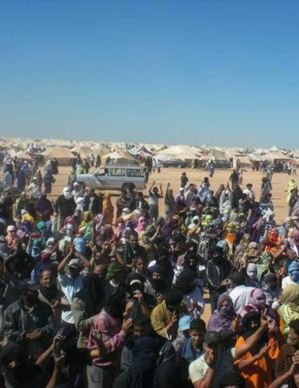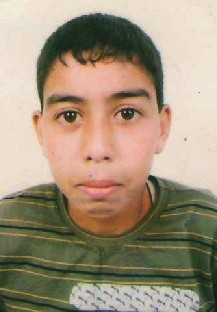|
Western Sahara Society | Human rights 20,000 Western Sahara protesters "starving"
By now, some 20,000 Sahrawi protesters have gathered in provisional camps outside the cities of El Aaiun, Smara, Dakhla and Bujador, according to reports sent to afrol News from coordinators inside the camps. The massive protest action started in a smaller scale almost three weeks ago.
In addition to establishing a total siege of the four established camps, Moroccan security forces also do their best to prevent the establishment of new protest camps. On Monday, Sahrawis in the southern Moroccan town of Guelmim tried to leave the town to establish a protest camp, but were "violently stopped by the Moroccan Gendarmerie, "using sticks and batons." The harsh Moroccan reaction to the Sahrawi protests has triggered international protests. Amnesty International on Wednesday urged Moroccan authorities "to immediately investigate" the killing of Elgarhi and insisted that "no excessive force should be used to disperse protestors." Mohammed Abdelaziz, the exiled President of the Sahrawi Arab Democratic Republic, said the Moroccan army "has created daily psychological pressure on the Sahrawi and caused a state of fear and panic amongst the women and children." He urged the Moroccans to lift the blockade immediately. Meanwhile, Moroccan authorities say they are trying to find a negotiated solution to end the protests in Western Sahara. Communication Minister Khalid Naciri commented the fact that so many of the citizens of El Aaiun were protesting in itself was proof of "the climate of democracy and freedom of expression" experienced in Morocco. Moroccan Interior Minister Taieb Charkaokui yesterday was sent to El Aaiun to seek an end to the Sahrawi protest action. Minister Charkaokui has yet to meet with the protesters. By staff writers © afrol News - Create an e-mail alert for Western Sahara news - Create an e-mail alert for Society news - Create an e-mail alert for Human rights news
On the Afrol News front page now
|
front page
| news
| countries
| archive
| currencies
| news alerts login
| about afrol News
| contact
| advertise
| español
©
afrol News.
Reproducing or buying afrol News' articles.
You can contact us at mail@afrol.com









